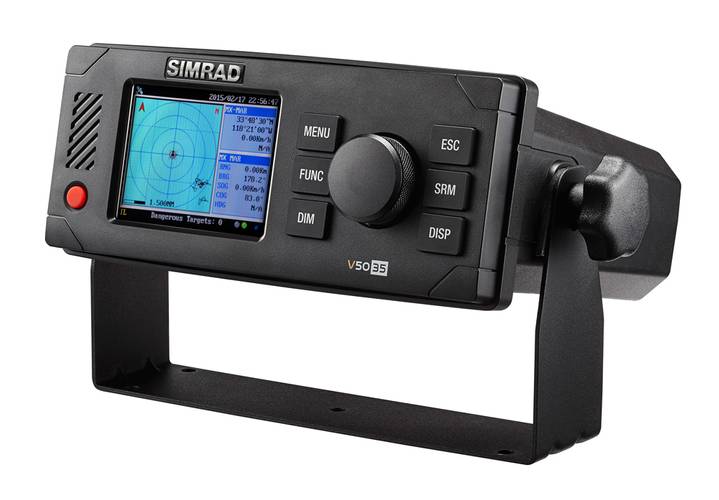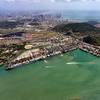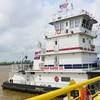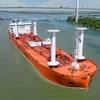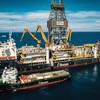Building Out on Big Data
Navico Builds to Broaden its Commercial Case
Marine electronics group Navico is aiming for a top three position in the commercial maritime sector within 3-5 years. Maritime Reporter & Engineering News seeks to find out from Jose Herrero, MD, the plans to accomplish the feat.
Navico is a strong player in the recreational boating sector, claiming a 32% market share and well versed in investing in growth both organically and through acquisition, including a commitment to product development. Its ambitions in a crowded commercial sector will have to be backed by a continuation of this successful formula.
There are obvious, inherent differences in the recreational and professional markets, and Navico’s pace of progress on the recreational side, where it introduces some kind of new or upgraded product at a rate roughly equivalent to once every 23 days, does not necessarily translate as appropriate for commercial market, where replacement cycles are longer.
However, Navico believes this pace of progress is indicative of its ability to challenge on both performance and cost. It also believes the pace of technological development will accelerate, and that improved vessel safety and efficiency will be the result, said Jose Herrero, Managing Director Commercial Marine Division, Navico.
“The commercial market does not need a new product every 20 days. The point is that Navico’s strategy is based on our ability to quickly acquire and use customer insight, apply our design-to-value competencies, test, and introduce products into serial production. We aim to break the status quo and deliver higher performance and lower cost than anybody else.”
Herrero likens the commercial ships of today to “factories that do not have a connection, or a very narrow one, to the internet. As communication costs onboard ships decrease, we see a revolution coming in how ships and fleet owners will use data and information. There will be demand for new equipment, applications, and integrated solutions for fleet owners to ensure safety and maximize the value of their assets. We are working hard to develop new telematics services to enable that.”
Navico Today
Navico currently conducts 60-70% of its business in the retrofit/repair market, operating as a fully integrated supplier, using its own design, production, and global supply chain via five logistics centers to drive down overhead across an industrial platform. The company believes the commercial marine electronics sector is heading for consolidation and “Navico’s operational excellence gives us an opportunity to become one of the industry’s leading players,” Herrero said.
Navico’s commercial product portfolio is offered under the 60-year old SIMRAD brand – itself born of a union of pioneering marine technology businesses. This portfolio, which includes IMO radars, ECDIS, autopilots, gyrocompasses, AIS, GPS, echo-sounders, and other navigational instrumentation, recently expanded with the acquisition of Norwegian navigational pioneer MARIS (Maritime Information Systems A/S). With more than 10,000 navigation systems delivered and as one of the leading suppliers of ECDIS worldwide, MARIS brings a portfolio of data solutions to the commercial maritime sector related to navigation, voyage optimisation, and voyage monitoring. MARIS solutions have been integrated into the SIMRAD brand.
“An acquisition in this area was strategic for us,” said Herrero. “We considered other options but MARIS was the best fit. Its solutions have been developed by a Norwegian company with one of the most reputable names in high seas navigation, and a long history of ‘world-first’ developments. All these fit well with Navico’s strategy and culture.
“Our ambitions in commercial market are based on organic growth. When we consider acquisitions, it is because they can accelerate our execution, be it by bringing complementary technical capabilities or assets such as an installed customer base and service network. Our investments in radar and ECDIS are critical to our ambitions to evolve into a supplier of integrated navigational systems. To be a top three supplier we need to offer a complete portfolio from fishing boats to large containerships.
“Our strategy is to integrate the companies we acquire and strengthen their offering to their customers by bringing them our technical competencies, supply chain capabilities, support network, product portfolio, and sales channels.”
Fresh ECDIS
In April this year, Navico launched the Simrad E5024 ECDIS system, an IMO compliant ECDIS. The modular E5024 ECDIS system offers an extremely intuitive and easy to use and to train ECDIS, with simple installation in either single, dual, or triple ECDIS configurations. Designed for NAVTOR ENCs including UKHO (for AVCS), Primar, IC-ENC, and NOAA, additional benefits of the E5024 include its compatibility with Radar, AIS & ARPA overlay (Simrad Argus Radar). The E5024 ECDIS system also includes support for an optional secondary display station, delivering complete control of Ethernet-connected Simrad performance modules including radar, conventional echosounders,
ForwardScan sonar, and StructureScan Imaging. It also enables connectivity to third-party accessories such as FLIR cameras, CCTV, and engine sensors. This solution is so cost effective that it offers the “benefit from paperless navigation even to vessels that are not mandated.”
In May, Navico is upgrading the now SIMRAD MARIS ECDIS900 to an entirely new high-performance hardware platform with updated software. This ECDIS system offers a feature rich solution that includes universal Radar overlay, multiple layers display (including paper T&P, Navtex, weather forecasts, Total Tide, and user defined objects), additional route planning functions (including navigation editor, parallel index, SAR, Voyage Plan with UKC calculation, and linking of route and objects/alarms), precise navigation tools (including predictor, Docking mode, and Active Leg panel) and multiples add-on functions (including Route optimization, Dead man alarm, BNWAS interface, approved TCS, and Conning Display). The system has its own integrated chart management solution which includes PAYS and is distributed and managed via email or Internet, through MBA (MARIS Bridge Assistant) for ship chart management, and MCP, Maris Customer Portal, for ship and fleet monitoring.
Both systems arrivals are timely, as they anticipate the upcoming deadlines for the mandatory ECDIS carriage requirements affecting up to 13,000 existing tankers of above 3,000gt by July 1, 2015, and existing cargo ships of above 5,000gt to follow in July 2016.
In fact, Navico’s ECDIS sales to April 2015 exceed the whole of 2014 for the combined two companies, Herrero said.
Training on the technology formerly offered through MARIS is available online, via computer-based training and at 127 certified learning institutes, in line with IMO requirements for equipment-specific coaching to be made available as part of mandatory ECDIS. Now, “priority is being given to training in-house technicians and service partners to strengthen the support network for all our ECDIS solutions through the SIMRAD commercial dealer network”.
At the heart of the Navico proposition for growing market share overall, will be the power of offering the customer the power of choice the best ECDIS solution for their fleets, Herrero said. “We have covered the market, from the feature rich high-performance ECDIS solution of the ECDIS900, to the E5024, the lowest total cost of ownership ECDIS solution in the market.”
Integrated Thinking
Choice and platform commonality will underpin Navico’s ability to reap the benefits of scale, he said. “The pace of change is going to accelerate in the commercial sector in the same way that we have seen it quicken in the recreational sector over the last 10 years. Only those companies which are truly committed to innovation will remain successful.”
In line with a company present in 100 countries, Navico is targeting growth from all regions for its commercial marine business, Herrero said. Supported by a global distribution and support organisation, and a strong network of over 150 technical dealers globally, the company is “investing heavily in all regions,” although the fastest growth is being witnessed in the Asia Pacific and Americas markets.
“During the past two years, we have brought our channel partners commercial products that include a high-quality SOLAS radar family (Argus), three new ECDIS systems (CS68, MARIS900, and E5000), a new range of type approved marine monitors, PAY-AS-YOU SAIL maps and voyage optimization solutions, and a new family of GPS/D-GPS/AIS products.
“Going forward we will drive towards more integration. Users familiar with the recreational market will know how superior the integration capabilities are. For years, users have been able to configure, display, and operate equipment in the network as a matter of course. Making commercial equipment modular, multifunctional, intuitive, and easy to use while still being compliant and offering maximum reliability will bring significant value to the customer and improve safety for all at sea.”
(As published in the July 2015 edition of Maritime Reporter & Engineering News - http://magazines.marinelink.com/Magazines/MaritimeReporter)





